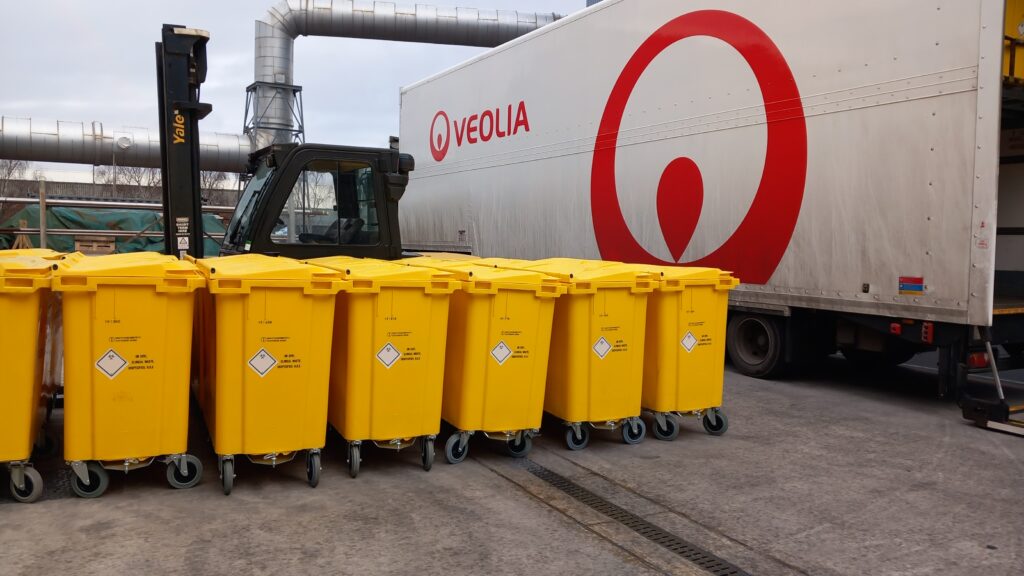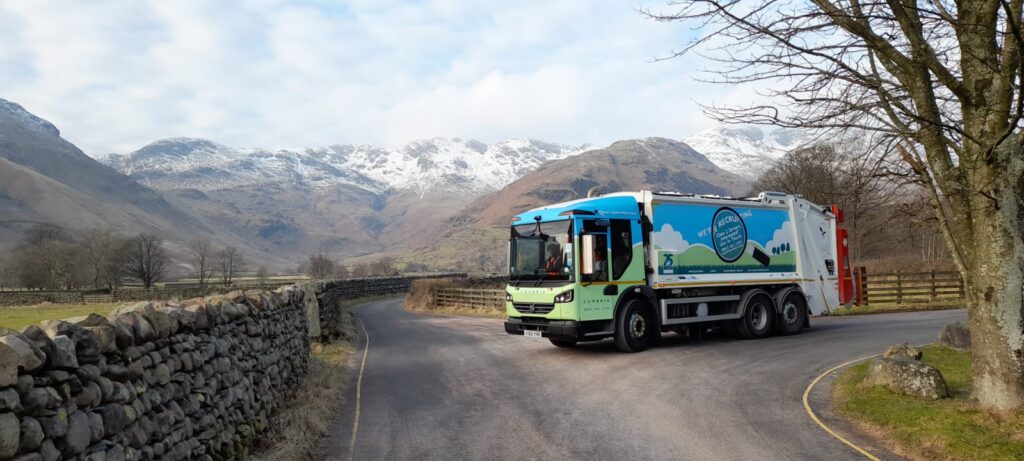As part of the expansion, Veolia has opened new clinical waste transfer facilities across the country that can segregate high temperature incineration (HTI) and non-HTI waste streams. This material is then processed through parts of the company’s energy from waste (EfW) portfolio which was specially adapted and modified during the pandemic.
Veolia uses EfW to treat clinical waste at its Tyseley and Staffordshire sites. It said in 2020 during the pandemic that this was the ‘best option’ for healthcare waste (see letsrecycle.com story).
Material can also be processed through the company’s existing clinical capacity, and its HTI site at Ellesmere Port.
The expanded service will deliver 15,000 tonnes of clinical waste capacity per year to the market “through a complete self-delivered service from collection to disposal”, Veolia said.
Our expanded service offering is truly innovative in this market
- Donald Macphail, chief operating officer for treatment, Veolia
‘Innovative’
Donald Macphail, chief operating officer for treatment at Veolia said: “Our expanded service offering is truly innovative in this market and completely changes the way clinical waste has been managed for many years.
“It demonstrates the commitment Veolia has made towards bringing new solutions that deliver waste hierarchy improvements and carbon reduction solutions to our customers.
“By using the clinical waste for electricity and heat generation, and putting energy back into the National Grid, the healthcare sector will be playing an active role in helping UK energy security, and dependency on fossil fuels.”
Process
Using the processes developed during the pandemic, Veolia said “the service will improve traditional clinical waste hierarchy positions, and can lower the carbon emissions by around 70% (from 212.60kg/CO2e/tonne to 58.03kg/CO2e/tonne) compared to existing services.”
It also enables the EfW facilities to generate up to 600 kWh electricity per tonne, and allows ferrous metal to be recovered for recycling.
Removing the need for pre-sterilisation through autoclave services, Veolia said its process avoids both the carbon produced from this energy intensive step, and eliminates the production of autoclave floc which requires further transport and additional carbon impact.








Subscribe for free